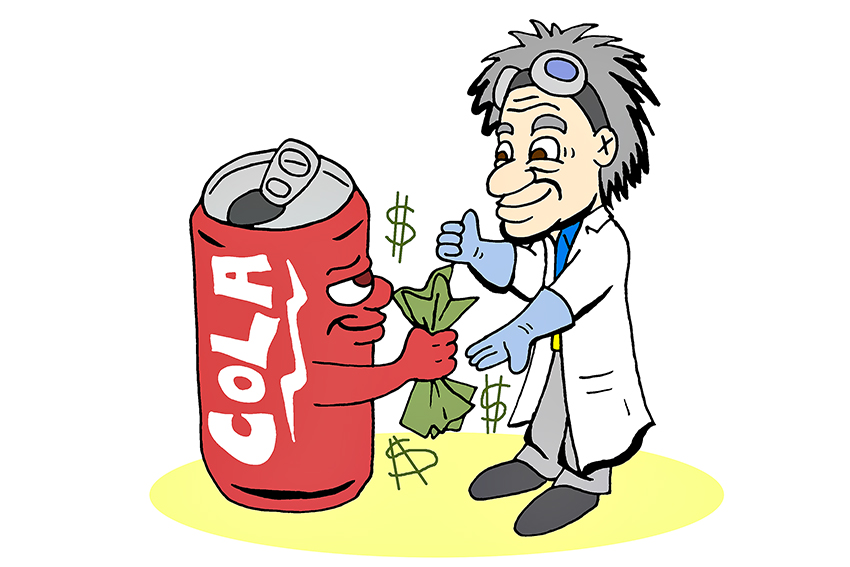The internet has transformed not only the way we live and socialize, but also how we digest media. It is easy to point fingers at platforms such as Facebook for allowing fake news to circulate. Yet there are other, more nuanced outlets where misinformation is not just spread, but content is manipulated.
The soda industry is one of the biggest culprits when it comes to misleading the public, specifically with masking the health risks involved with the consumption of soda. Companies such as Coca-Cola engage in misinformation by funding scientific research which, unsurprisingly, provides the industry with biased results.
Just this month, Annals of Internal Medicine published an article that suggests research funded by the soda industry is more likely to find that soda has no health risks. Rather, what these studies do is deflect attention away from soda and other sugary beverages. It isn’t a recent phenomenon either; the soda industry has been blaming other sources, such as fat, since the 1960s, but independently-funded studies have revealed soda’s connection to Type 2 diabetes and obesity.
For the soda industry, these positive results are used to not only encourage consumers to continue purchasing their product, but to influence voters in cities which have a soda tax on their ballot. Fortunately, the soda tax passed in the California cities Albany, Oakland and San Francisco, as well as Boulder, Colo., despite increased spending from soda lobbyists to convince voters otherwise.
It is one thing to ask for researchers to be more transparent about their funding and practices, but that simply is not enough. This isn’t a testimony against the soda industry’s nefarious practices, but a call to consumers to approach the information they are presented with caution.
But it is easy to ignore the facts and only focus on content that conforms to our own biases. There have been countless studies that demonstrate that vaccines do not cause autism, yet these are ignored by anti-vaxxers who continue to rely on repeatedly discredited sources.
The consequences of not distinguishing factual information are detrimental to our health. The U.S. is currently in the middle of a measles outbreak because of the Anti-Vaxxer movement, which is startling when you consider that measles was officially eliminated in this country in 2000. The public is in a similar position when it comes to the soda industry, but this issue requires more visibility. We shouldn’t willingly accept all the science articles that come our way since they can ignore underlying problems such as research bias and discredited information. Research studies are meant to promote knowledge, not be used as a marketing tool to reinforce an industry’s agenda. We must all become equipped to differentiate between the two.
Fernandez is a rhetoric and writing and Spanish senior from Allen. She is a senior columnist.





















